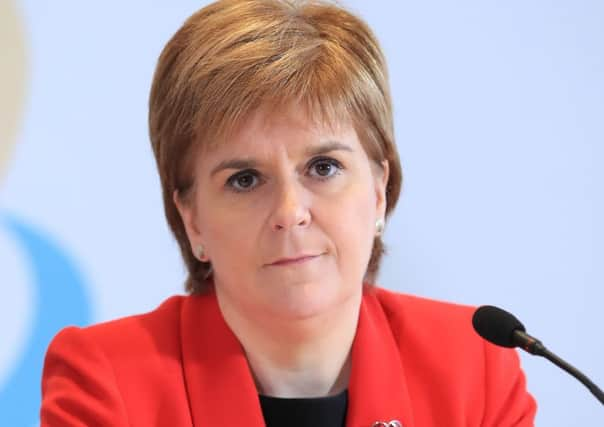Nicola Sturgeon knows she must play for time on Scottish independence – leader comment


Nicola Sturgeon yesterday talked the talk about a second independence referendum, but didn’t actually commit herself to start walking.
Her statement to the Scottish Parliament was almost certainly about being seen to take action ahead of the SNP conference this weekend, offering hope to the party faithful while also trying to calm them down. Whether she’s done enough to satisfy her followers remains to be seen, but it is clear Sturgeon understands the dangers for the independence cause of losing another referendum and the importance of waiting for consistent signs of majority support in the polls.
Advertisement
Hide AdAdvertisement
Hide AdIt’s fair enough that, as a Scottish National Party First Minister, she should make plans for a referendum – the clue is in the title. But surely everyone in Scotland, on both sides, can agree that Sturgeon must not take the ‘Theresa May approach’ to losing a vote – just keep repeatedly asking the same question. That’s not worked on MPs with May’s Brexit plan and think of the dismay and division if Scotland finds itself facing up to IndyRef6 in a few years’ time. So those plans should stay on the shelf until there is a sign of a substantial shift in public opinion. On the other side of the argument, it is a mistake for the Conservatives and other Unionist parties to simply try to wish independence away. They need to make an active case for the Union and Scotland’s place in it.
Scottish Tory MSP Murdo Fraser recently called for the constitutional make-up of the UK to be changed following the country’s departure from the EU to create a ‘quasi-federal’ United Kingdom. Whether that is right or not, he is at least trying to think of ways to make the Union more appealing to Scots, to seek a settlement that could turn out to be a lasting one.
This is still a relatively finely poised debate. If a no-deal Brexit is thrown into the mix, it may well boost support for independence, particularly if the economic damage to the UK is severe. The softer the Brexit, the lower the price will be and the greater the chance that Scotland will accept life outside the EU despite voting 62-38 per cent in favour of Remain.
The next few years are likely to be heady ones and so perhaps the most important thing is not actually Brexit or independence, but this: remembering to be respectful, considerate and kind to each another. Friendly persuasion, not verbal warfare, will be what wins the day.
